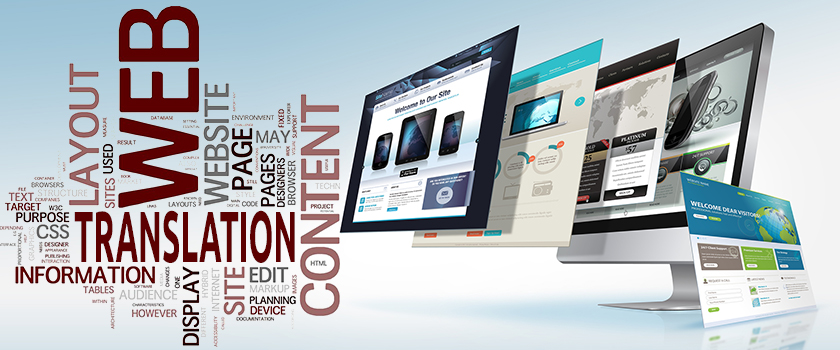2025 Offer Request a Quote Today and Grab a $50 Coupon for Free!
The world of today is a rapidly-developing myriad of shifting possibilities and opportunities. But one thing that makes new developments possible is communication.
While communication between individuals is easy to establish, the communication between business parties and companies is a whole other matter altogether.
Not everyone speaks and understands the same language, which is why translation and interpretation services play a vital role in ensuring everyone understands what’s being communicated. Furthermore, localization—the adaptation of one’s business services according to the target market, also makes this communication easier and effective.
But what happens if the amount of content to be translated is huge and impossible to handle by a group of translators?
This is where the Translation Management System (TMS) comes in.
In order to learn about TMS, it’s important to know what TMS really is, its purpose, significance, and of course, how it works.
A translation management system (TMS) is a central platform that has the ability to simplify the automation and management of localization and translation.
It computerizes repetitive tasks in a content translation, significantly reducing manual practices and improving the proficiency and control of the whole program. In short,
TMS can automate, centralize, and control the translation and localization workflow.
The main goal that a TMS aims to fulfill is the utilization of resources, productivity enhancement, and reduction of time.
The translation market of today offers a host of TMS consisting of countless functions.
TMS greatly depends on the amount of translation requested by the company and the number of translation retailers a firm needs to manage.
Generally speaking, executing a TMS can assist any company in managing and examining its translation workflow and its vendors, aiding it in maintaining, improving, and monitoring courses.
With the help of TMS, dealing with huge volumes of data becomes easy. Through the centralization of all translation-related tasks, the benefits of TMS can be fully reaped, that are, processed standardization, lesser risks, and healthier performance.
An essential part of any TMS is a well-organized vendor record. Before executing tasks through TMS, the complete portfolio of the vendor is analyzed—its specialization, language combinations, charges, etc. This information is then used in performing translation assignments.
With the assistance of KPI functions and business analytics, a company is able to determine and examine each vendor’s requirements. For instance, the number of sales made by vendors per day/week/month or year; their response times towards translation requests, scheduling or times of delivery, and the ratings provided by the company’s (project/localization) administrators, etc.
However, a translation company can also have a data-driven approach to vendor management, which becomes very useful at the time of selecting fresh vendors and in increasing the human resource database.
Every association requires unique solutions for its problems. TMS is an extremely flexible platform that allows firms to integrate various customized features and technologies to produce a tailor-made solution.
For example, modifying the look and feel of the TMS user interface by adding the user’s company colors and logo can boost its brand image.
Other than that, a TMS also enables users to form customized reports of vendors’ economic data, orders, jobs, and projects for a holistic localization experience.
Customization of workflow is very important, especially when it comes to making sure all the content is localized according to the target market. One must be able to automate and customize countless workflows, starting with a traditional TEP (translation-editing-proofreading) workflow and post-editing stream.
This would also include back translation, cognitive evaluation, and reconciliation of data to make it more coherent and understandable.
While selecting a TMS, one should keep in mind that integrating with the most used enterprise applications for content management systems (CMSs), cloud storage, and marketing automation systems such as Drive or Dropbox can take TMS to a completely different level, which is why it is important to select a suitable TMS after proper research.
Language data such as terminology databases and translation memories (TM) are considered as valuable business properties. The ability to control and maintain a TMS provides a company with additional flexibility to respond to market demands.
When external sellers work on a translation project, TMS makes the learning easier for them to understand, especially in the case of highly complex and technical projects. Moreover, translation memories can be saved in users' centralized TMS, allotted to multiple vendors according to the jobs in progress.
Different content streams demand different file formats, which is why a translation management company should make sure the TMS platform supports all main file types for documents, software, videos, games, web content, e-commerce, etc.
A flexible TMS must permit a user’s organization to scale functions and formats up to and down simply by removing or adding a plugin. In fact, in a SaaS environment, it is much easier to scale functions as the provider himself takes care of all updates.
Additionally, a flexible provider also wishes to meet consumers’ needs for fresh implementations, especially when countless customers can benefit from it.
TMS software providers are basically technological corporations, proposing on-premise or SaaS installations of their software along with packages for training and support. The operators and buyers of TMS platforms generally consist of some pre-defined workflows and mostly have a core set of requests that the TMS fulfills.
The difficulty with TMS is that the client-side operators hold a heavy amount of control which is much more than required. TMS platforms are less efficient and slower as far as their computing purposes are concerned.
A complex TMS causes frustration for linguists—with sub-menus and numerous options, the whole task of translation becomes burdensome for them. The provision of clear instructions will be quite helpful in removing their confusion.
There are some pieces of evidence that support these criticisms, but they show a clear opportunity for TMS providers as well.
Those who are capable of proposing a level of modularity in their programs and pay attention to fulfilling the requirements of customers will be able to modify their software according to the customer’s situation.
Other providers who do not possess that capability risk losing valuable customers and translation projects.
Translation management systems are incredibly powerful and valuable platforms for translation purposes. With the capability of streamlining your translation content, TMS is well-suited for work with internal teams and external freelancers, but currently, they are not well-set up to work with language service providers who work on multiple platforms.
In the execution of tasks, standardization and development of solutions need to be made. For instance, a major step forward in the TMS workflow would be the unlocking of centralized translation memory, glossary, and machine translation system in such a way that other TMSs can connect and re-use those resources directly.
This would also deliver the additional benefit of powering up CAT tools for a professional translation service. Moreover, by enabling all vendors to connect to central resources in time, the functioning of TMS can be made more manageable and usable.
The translation is what makes global communication possible, and a centralized, efficient TMS is the key to ensuring that all communication is made smoothly between businesses, companies, and individuals.

Language variations are quite noticeable every few miles, reflecting the unique identity of each region. Talking about India, the country
Read more
The term ‘woke’ has come from the black culture and now it has been removed from its origin after it
Read more
Mars Translation provides high quality and professional Certified French Translation Services all over the world. We have a team of
Read more
Mars Translation provides one of a kind professional Chinese Document translation services all over the world. All of MT’s translators
Read more
MarsTranslation provides one of a kind Chinese Legal Translation Services. We have a team of native Chinese linguist who specialize
Read more
Chinese Certified Translation services is one of the most asked for service at MarsTranslation. We believe in providing quality services
Read more
Mars Translation is one of the fastest growing companies in the translation industry. This is the reason why we pay
Read more
MarsTranslation has a huge team of website translation specialists in more than 230 languages. Our translators are constantly supported by
Read more
Mars Translation provides high quality and professional Certified Spanish Translation Services all over the world. We have a team of
Read more

